New Roanoke Makerspace Crafts Community of Hobbyists, from Sewing to Woodworking
MAKE Roanoke, a new nonprofit, will provide tools and machinery for builders and tinkerers to create their own projects.
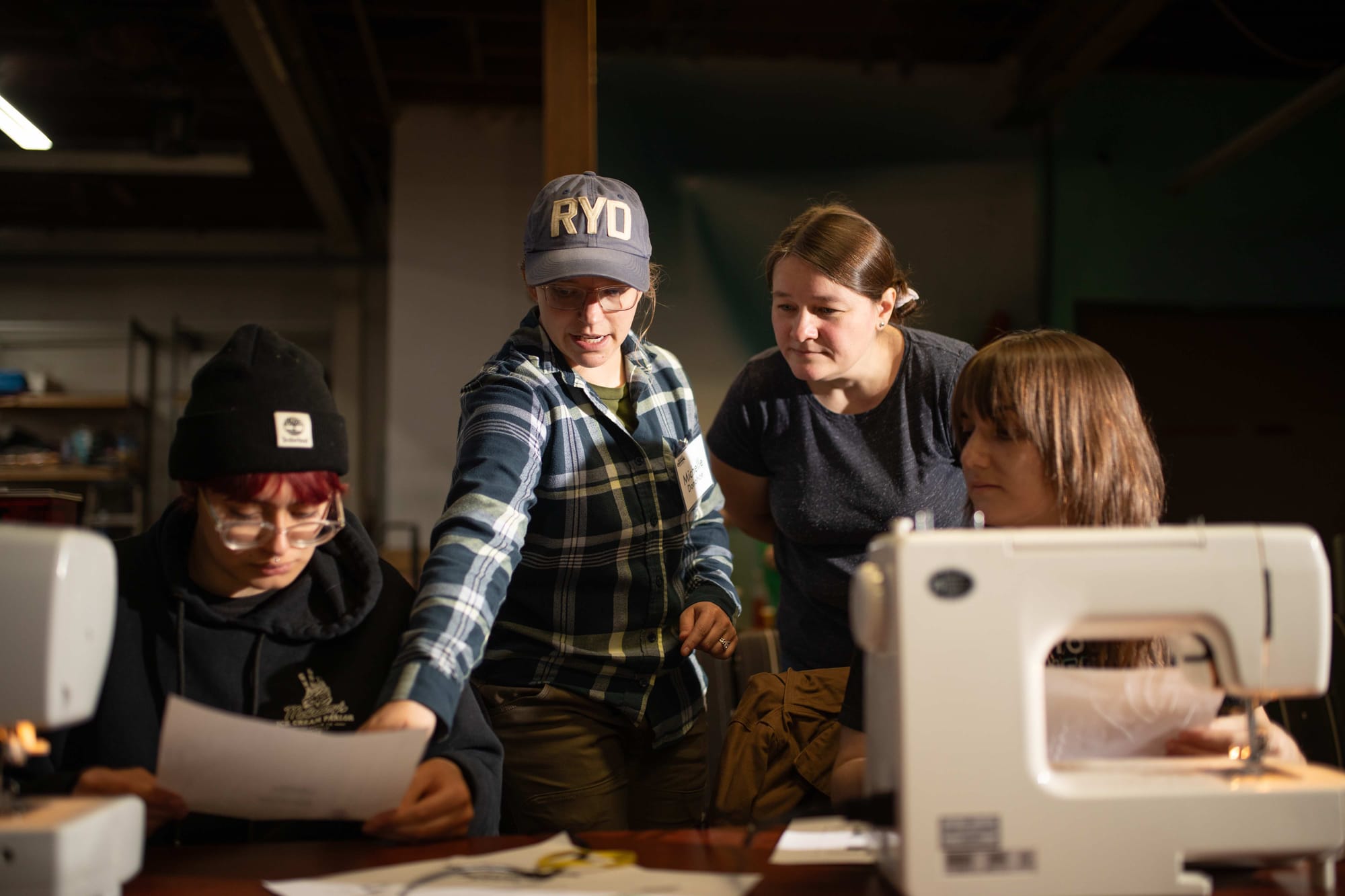
Shannon Knight carefully moved her hands around the bobbing needle of a sewing machine, working hard to keep her stitches in a straight line.
“My mom makes this look so easy,” she said with a tinge of frustration.
Michelle Donohoe watched over Knight’s shoulder, offering advice with the words of a dance instructor.
“Slow down … now backward … now forward …”
“I’m going to mess it up,” Knight said.
“That’s what this is for,” said Donohoe. “This is where you’re going to make mistakes.”
Knight wasn’t sewing pieces of fabric together into a garment or a blanket. She was simply practicing by following patterns on a piece of paper, slowly maneuvering the sheet in a back-and-forth waltz on her machine. She was one of about a half-dozen folks who participated in a beginner’s sewing class at MAKE Roanoke, a new makerspace that’s set to officially open to the public on Saturday.
MAKE Roanoke is a nonprofit that will provide tools and machinery for builders, tinkerers and hobbyists to create their own projects, all that equipment available in a 2,900-square-foot space at Williamson Road and Albemarle Avenue Southeast that will be open to members 24 hours a day, seven days a week.
Members and volunteers have worked for just over a year to establish the space, which is like a computer lab, wood shop, knitting factory and metal fabricator all under one roof.
Makerspaces started appearing more than 20 years ago across the globe to provide new technologies and old-fashioned hand tools to people who otherwise might not have had access to the necessary equipment, which includes high-tech devices such as laptops and 3-D printers, to bring their ideas to life. Many colleges and even high schools have created makerspaces to provide hands-on learning for students. Virginia Tech and Radford University are home to several makerspaces on their campuses, and Virginia Western Community College’s space (called the FabLab), celebrates its 10th anniversary this year. Virginia Tech’s Corporate Research Center is home to Hacksburg, a community workshop open to the public.
Anywhere from 300 to more than 400 makerspaces exist in the United States, according to researchers, with the majority operated by nonprofits and clubs, such as MAKE Roanoke.
“The biggest thing is that it gives people who don’t have space or money for expensive tools [the means] to be able to pursue their creative outlets,” said Georgina Flynn-Smith, a co-founder and treasurer of MAKE Roanoke.
She added that makerspaces “attract creative minds and foster collaboration and teach new skills. They’re huge assets to a community.”
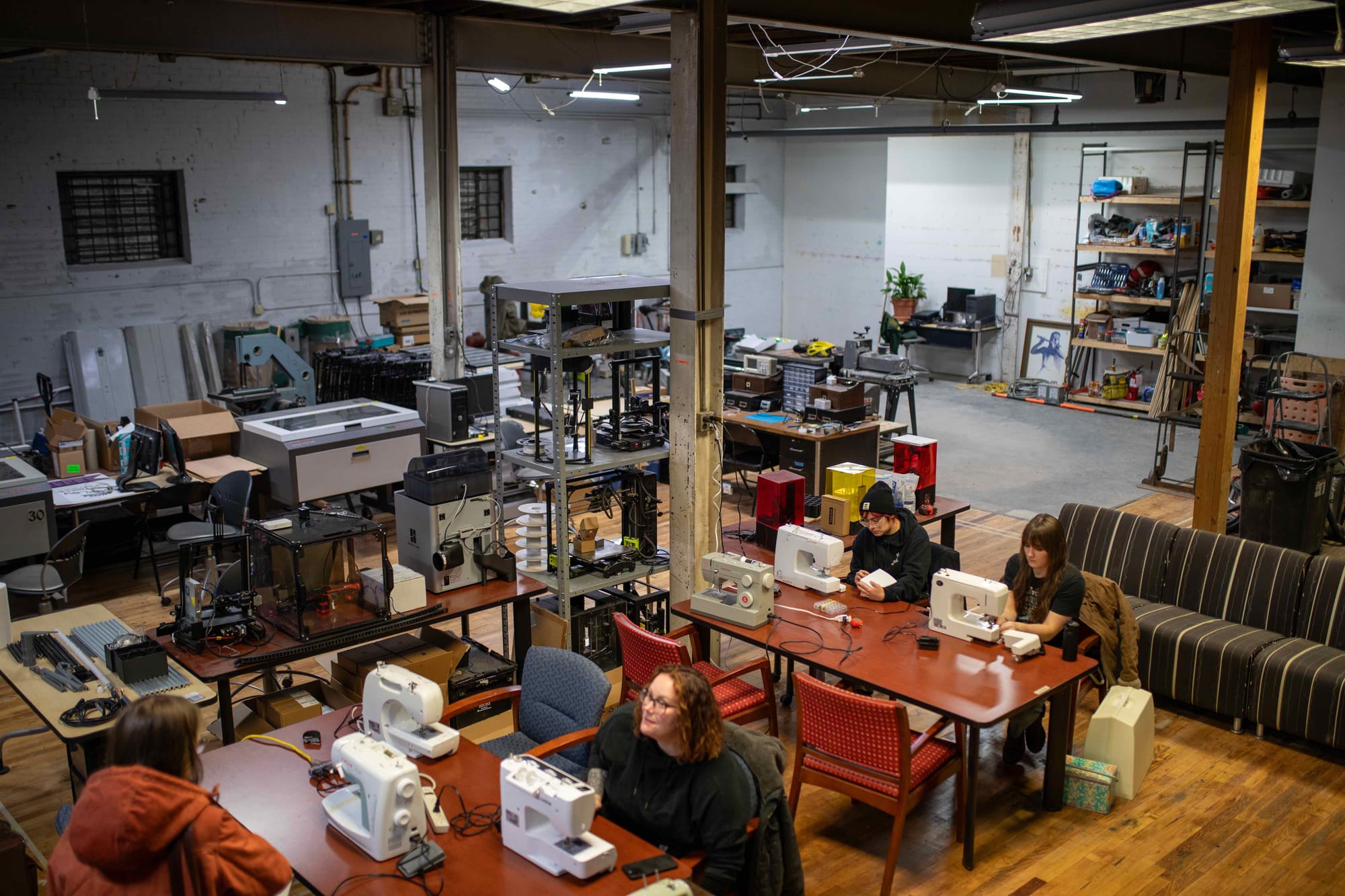
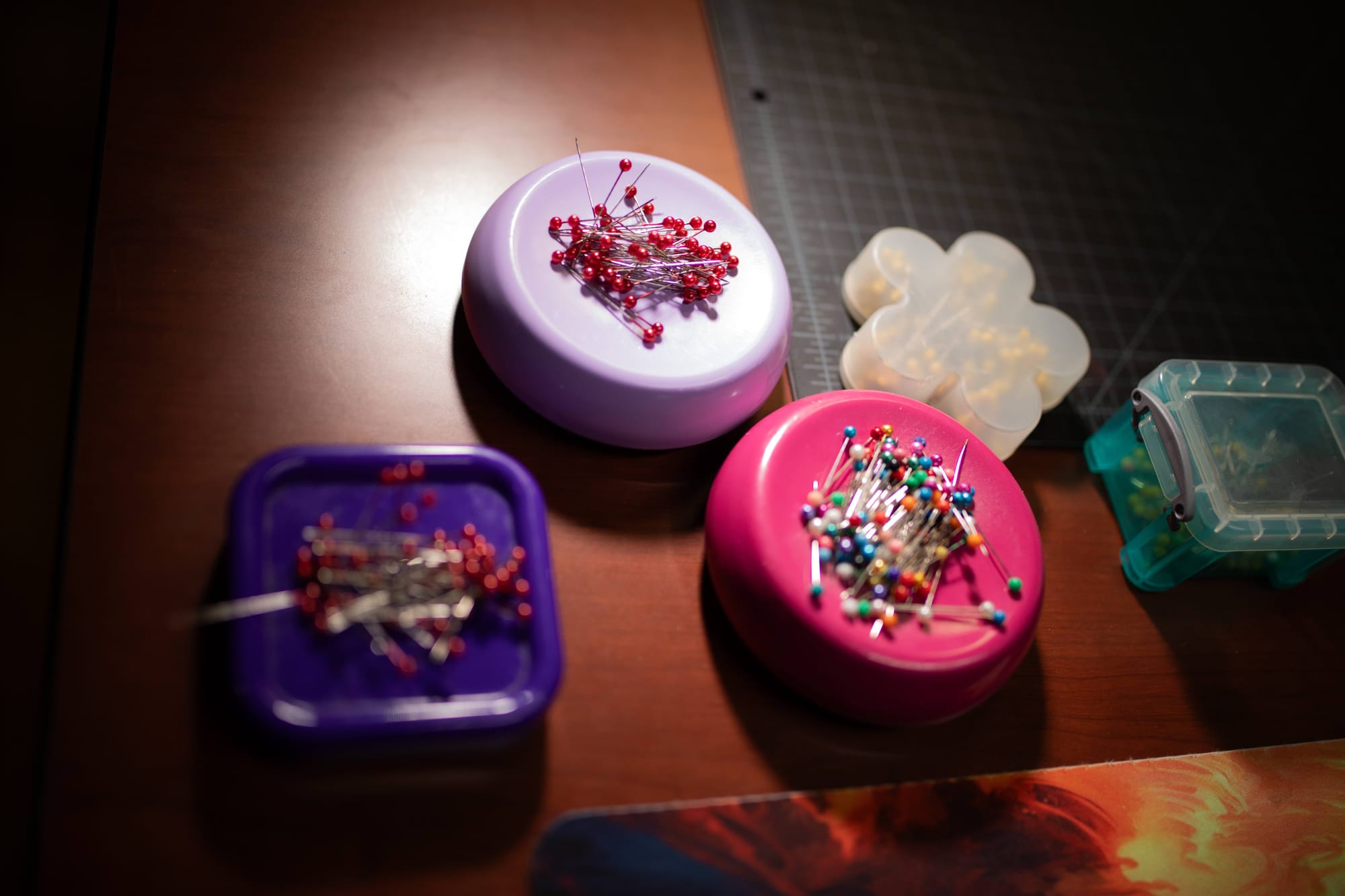
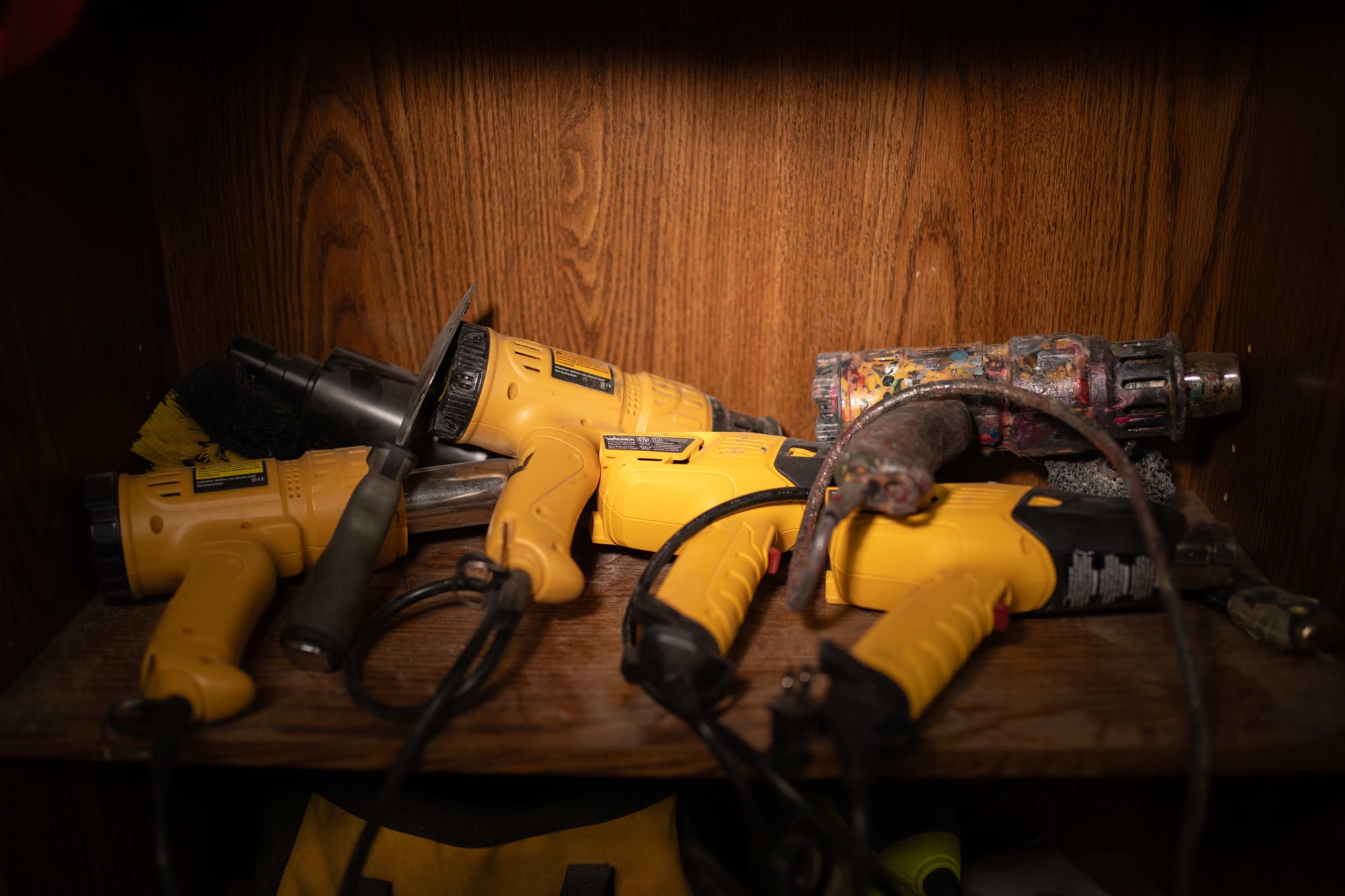
Even creative rookies can participate, either by becoming members or taking classes such as the sewing workshop offered in February, where participants learned basic skills and stitched together plush dog toys.
Not everyone attended class just to learn how to sew stitches in straight lines.
“I want to start making my own clothes,” said Lavender Delgado, one of the attendees.
During a recent “show and tell” event at the MAKE Roanoke space, people displayed the projects that they have been creating on their own time as they waited for the makerspace to open. Folks showed off a bushel of cool electronic gadgets: a device that monitors blood-sugar levels, a four-wheeled robot, cannons for remote-controlled model battleships that really shoot and miniature 3-D-printed radios that send and receive text messages.
“On the opposite end of the technology spectrum,” said Matt Brown as he presented his project — a handmade, old-time mountain banjo made from cherry wood.
Even though makerspaces provide high-tech equipment for 3-D printing, laser-cutting or computer programming, resources are also available for old-school trades such as knitting, woodworking and metal-crafting.
People have shown paintings, leatherwork and sewing projects during public meetings. In March, one woman brought her “therapy chicken,” a stuffed hen that she had hand knitted. Samantha Sullivan, the shop captain for the fiber arts area, showed yarn coasters she had made with a method called needle punching.
“You stab over and over,” she said, demonstrating the hole-punching technique for a roomful of about 35 people who attended the show and tell. “It’s so satisfying. If you’re mad at the world, I recommend it.”
MAKE Roanoke’s space will be divided into four main areas: woodworking, metalworking, 3-D printing and fiber arts (sewing, crochet, knitting, quilting). Prospective members will need to participate in a general orientation before they are allowed to use the space. Specific training is required for using certain tools.
A general orientation will be held during MAKE Roanoke’s “soft opening” Saturday. The space operates at 128 Albemarle Ave. SE, the former home to Press Press Merch, a screen-printing and custom-made merchandising company that moved to Roanoke County. The building is also the site of classes offered to members and non-members. Past classes, some of which were held at local libraries, have included sewing, 3-D printing, computer-assisted design and basket-making.
Inside the garage-like makerspace building, pieces of electronic equipment and tools give the place the look of an operating room for robots. Circuit boards, metal boxes, computer screens, wires and tools sat on tabletops, soon to be employed in a high-tech creative process. As the sewing class took place, Nick Dunne, the shop captain for the 3-D printing area, disassembled an old printer to save its parts for a later use.
Most of the 100 pieces of equipment were donated by individuals or businesses, Dunne said, which helped the nonprofit hold down its expenses. MAKE Roanoke offers memberships for $50 per month, and also raised $10,510 through a Kickstarter campaign.
The group currently has 62 paying members, most of whom joined at a discounted rate. Flynn-Smith said MAKE Roanoke needs about 70 members paying the full $50 per month to make the project self-sustaining. She said that the group has enough money to provide “a buffer for several months.”
Flynn-Smith and other members cited the community collaboration as one of MAKE Roanoke’s most important features. Brian Alexander, who builds remote-controlled boats and displayed their working miniature cannons, said that the makers can be inspired by working closely with other creative types.
“For me, the real value of MAKE Roanoke is being part of a broader community of makers who are sharing ideas and taking an active interest in each other's projects,” Alexander said. “When you are working alone on a project, or with a small group of people who see the problem the same way, it is easy to get tunnel vision and miss really innovative improvements. Having access to a cross-cultural community of people with a broad range of backgrounds and skills is the real beauty of makerspaces.”
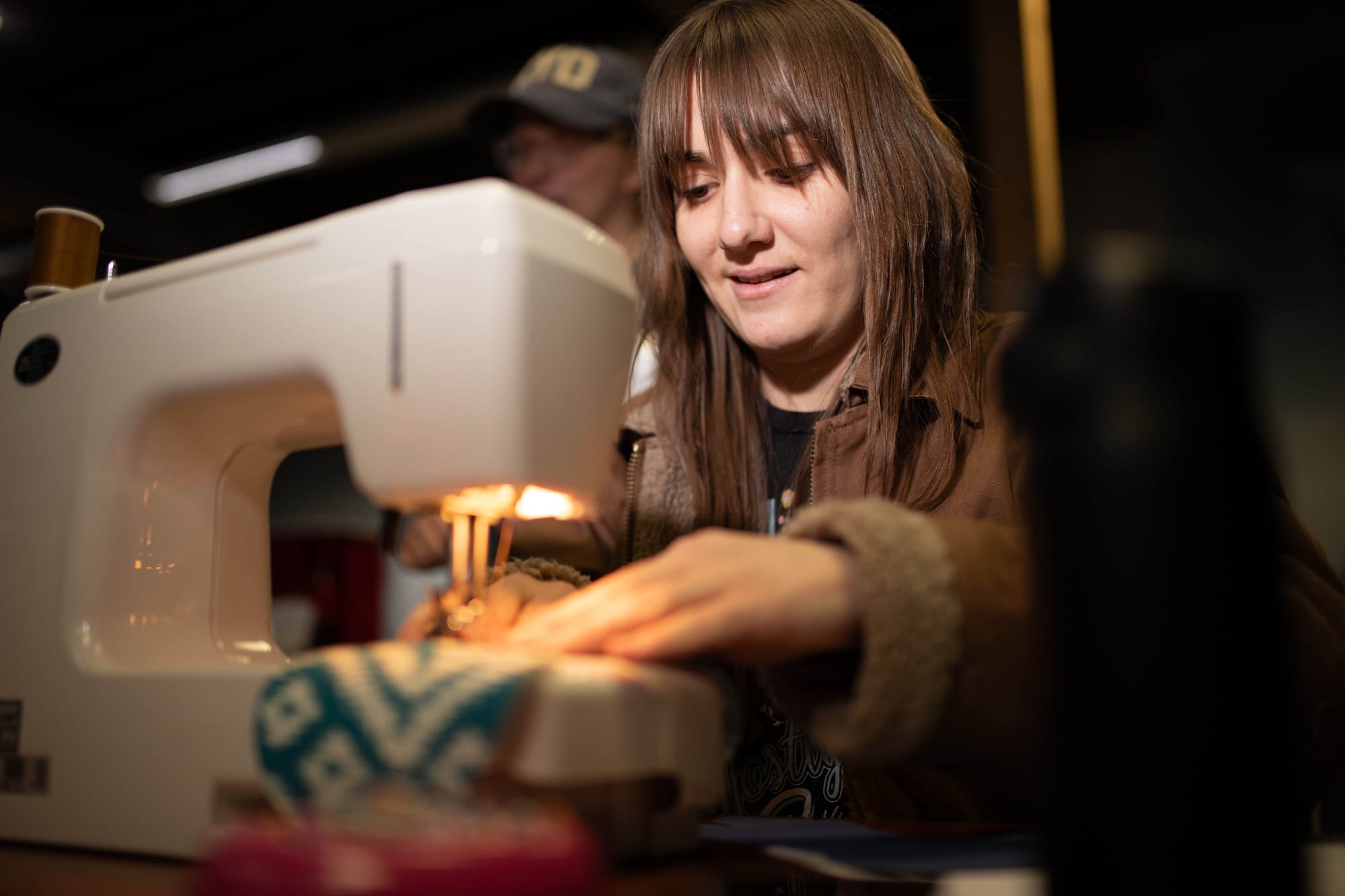
Researchers haven’t found much evidence that makerspaces provide economic boons to their communities or generate high levels of entrepreneurship, but advocates echo what Alexander said: that people benefit from collaboration and can improve their projects through sharing knowledge.
Flynn-Smith said that members are already networking through the group’s Discord account, which includes a jobs board. A member who works in graphic design recently used Discord to team up with a board-game creator who needed help with artwork, Flynn-Smith said.
“In our community, people have hired each other to make something or repair something,” she said.
Sometimes, the projects are simply for fun. Flynn-Smith, a California native and an active-duty Army major who moved to Roanoke two years ago to earn a doctorate in biomedical engineering, doesn’t require a scalpel or a microscope. She wanted a working light saber, just like any soldier (or Jedi) needs. She 3-D-printed some pieces, and worked with another group member on the wiring to produce proper light-saber sound effects and colors.
“Just because I’ve always wanted a light saber,” she said by way of explanation.
J.J. Halsted, a 19-year-old man studying engineering technologies at Virginia Western, has worked in other makerspaces and he said that MAKE Roanoke’s shops are bigger and better than those he’s visited at some universities. Recently, he brought to show and tell a “swerve drive,” a four-wheeled contraption that looked like a Roomba vacuum cleaner with the top down, that he built at Virginia Western.
He said that the MAKE Roanoke space could attract younger people who lack the money or equipment to make their ideas become reality.
“A lot of people say, ‘I have ideas, but I can’t,’” Halsted said. “With this place, they can.”

